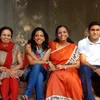Use tech for empowerment, not hate: messages and insights from the 10th mBillionth Digital Awards
A range of social entrepreneurs from South Asia are using mobile innovations to alleviate social problems rather than sowing discord, as shown in this annual mobile conference.
Hosted by the Digital Empowerment Foundation, over 110 nominations across South Asia were received for the tenth annual mBillionth Awards and Conference for excellence in mobile innovations. It featured innovative projects and initiatives by entrepreneurs across seven sectors. See our earlier coverage of DEF’s eNGO Awards, Social Media Awards, and Manthan Awards.
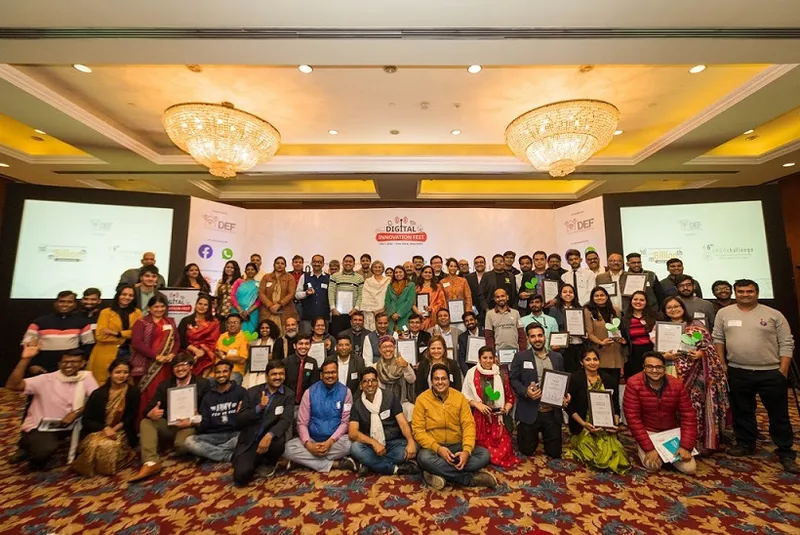
Winners and finalists were announced in the following categories: agriculture, business, culture, government engagement, health, inclusion, media, and education. The event also featured keynotes and pitches on digital excellence and impact.
Critical thinking
There are unintended consequences of the rise of digital media, as well as blatant violations of laws and ethics regarding proper use of online platforms, cautioned Arun Maira, former member of the Planning Commission of India and author of Remaking India: One Country, One Destiny. He was also former chairman of BCG (India).
Digital media is being used for social empowerment, but can also be used as a gun, he explained. The rise of fake news and hate speech in online conversations in India is alarming, Arun lamented.
“When India gained independence in 1947, it was born as a poor country, but admired for its respect for diversity,” he explained. He called for more “national listening” at this critical juncture in India’s journey, and willingness to listen to and learn from people different from oneself.
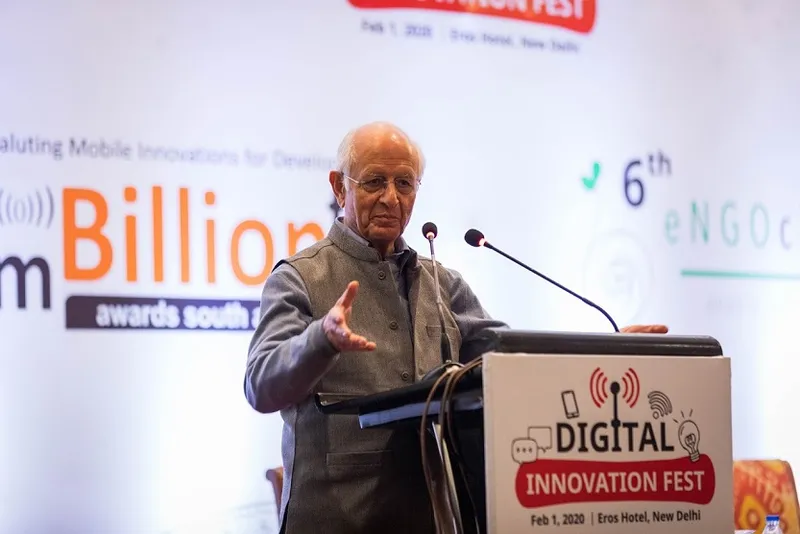
Arun Maira
A panel discussion titled Media in Every Hand: We Need Critical Thinking debated some of the key challenges around the rise of fake news and hate speech. Moderated by Seema Chishti (Indian Express), it featured Rema Rajeshwari (Superintendent of Police, Mahbubnagar District, Telangana), Kritika Goel (Assistant Editor, The Quint), Asma Zaidi (Assistant Editor, Youth Ki Awaaz), and Shivam Shankar Singh (author of How to Win an Indian Election).
The dominant social media platforms are focused largely on targeted advertising and keeping users addicted to the platforms, Shivam argued. Flagging fake news is not a top priority for them, he added.
Unchecked social media rumours have led to mass hysteria, fear, paranoia, and even mob violence, Rema cautioned. Social media has affected how police track and respond to incidents of crime. It is important to use online and offline engagement to teach people to spot and defuse fake news and not circulate the content, she urged.
Rema pointed to Finland’s education system as an exemplary one in terms of teaching digital literacy and critical thinking. Right from primary school, students are taught about the content ecosystem (including fake news), ways in which statistics can be used to manipulate issues, and how images and videos can be altered. They are even taught and cautioned about how propaganda has been used throughout history, and how it has led to wars in different contexts.
Digital users need to be educated to question the source of news items they see, advised Kritika. They also need to be aware of cognitive phenomenon like ‘confirmation bias,’ where people assume a piece of information to be true simply if it fits into their worldview. To a certain extent. tech solutions can help detect deep fakes and manipulated videos.
Those who are opinionated and emotional and want to express their views should take care to follow basic journalistic processes of fact checking, Asma urged. The panelists also cautioned that radical content and messages seem to attract the most eyeballs and forwards, and some people tend to be less restrained and more visceral in social media.
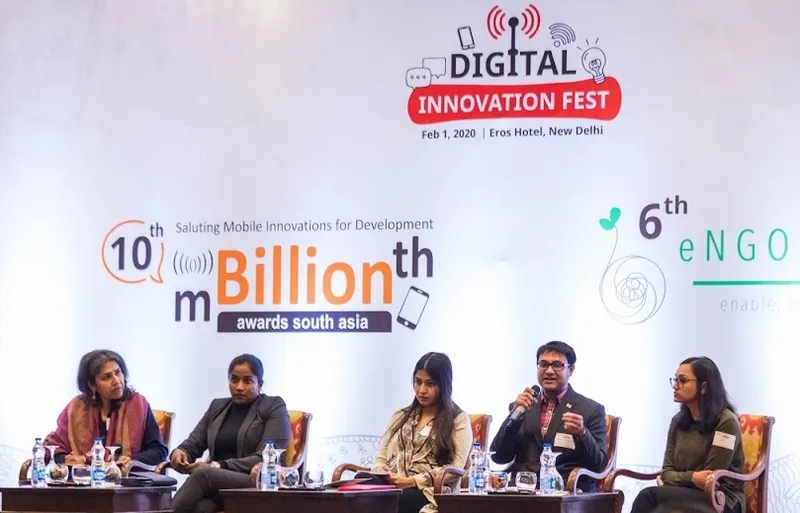
Panel: Critical Thinking and Digital Media
Digital innovation and access
“Conservative mindsets are being challenged thick and fast by the emerging innovators. The digital ecosystem is constantly being nourished and enriched by mobile innovations,” said Osama Manzar, founder of the Digital Empowerment Foundation.
“Access, affordability and awareness of mobile tools continues to be a challenge,” observed Abhijeet Mehta, COO, Quest Alliance. “Access is not just a function of cost and data penetration, but also about social mores and age-old discriminatory practices,” he added.
While the majority of youth are adept at accessing the mobile ecosystem to seek entertainment, there is not enough awareness about use of digital avenues for job opportunities, career-related information, and peer connects, Abhijeet said. He called for more strengthening of the regional-language internet as well.
Here are the organisations which were declared winners or were awarded Special Mentions and Chairperson’s Distinction at the mBillionth Awards 2020. Jurors for the awards included Angellica Aribam (Femme First Foundation), Anto Philip (Under25), Ankit Vengurlekar (Xiaomi), Nazia Erum (author, Mothering a Muslim), Sohini Bhattacharya (Breakthrough), Rajen Varada (Open Knowledge Community), Sunil Khairnar (Indigram Group), Mahesh Venkateswaran (Knack), VK Madhavan (WaterAid India), Deepak Maheshwari (public policy practitioner), Nathasha AR Kumar (Vajor), and Anubha Bhonsle (author, Mother, Where's My Country?).
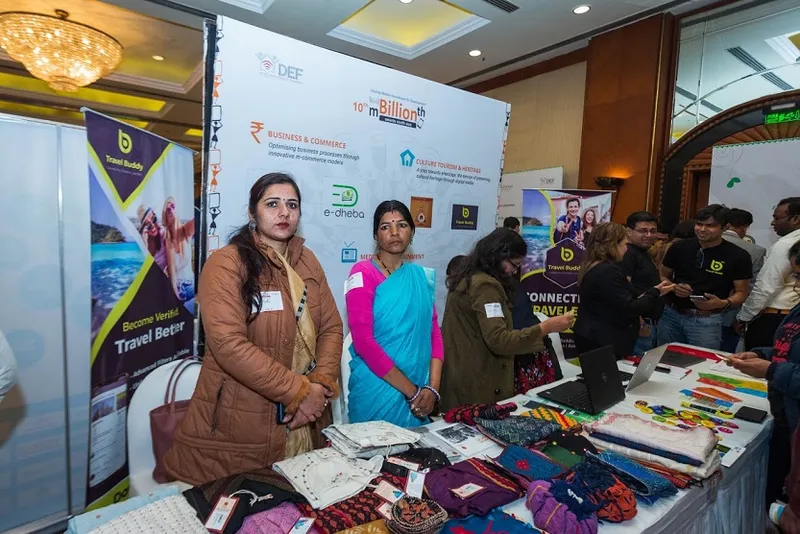
Agriculture and environment
AgriMedia Video Mobile Application, developed by Digital AgriMedia, provides agricultural information and interactive forums. Farmers can ask questions about their agricultural problems, and transact directly online. Videos are available on agricultural practices and government schemes. The app reports over a lakh downloads and a million views.
The app, developed by FarmGreen Agritech India, allows farmers to access real-time information on crop management techniques, pesticides, weather forecasts, crop insurance, cold storage facilities, and agri-dealers. Market prices and three-year trends are also available, along with tools for tracking agricultural expenses.
Cropin’s SmartFarm application is a complete farm management system which enables agri-businesses to adopt data-driven processes. It includes timely advisories on crops and climate, along with interactive web dashboards on field activities and production estimates.
Culture and tourism
Travel Buddy has connected over 20,000 people across the globe, encouraging them to explore new destinations. Users can take part in discussions about local food and culture, places to have new experiences, and explore untapped destinations. An individual can build a detailed profile, add upcoming trips, share photos and itineraries, submit reviews, book tours, and even find a travel buddy.
Early stage initiatives
is an assistive UI platform which provides audio-visual assistance in local languages. It can be used for content and transactive interactions. It is live on MyJio app, and provides digital handholding to more than 10 million users.
Swapeco helps organise the recyclable waste management system in India. Users can schedule a doorstep pickup to sell their scrap. Verified scrap vendors use digital weighing scales and follow regulated scrap rates. Clients include Bank of Baroda and IIIT-D, and over 75 tons of waste have been sent for recycling.
The Preterm Care app delivers educational content to healthcare professionals. It focuses on management of preterm neo-nates with evidence-based practices. There are over 110 videos, 55 webinars, self-reading scripts, and self-explanatory posters, covering skills and simulation learning.
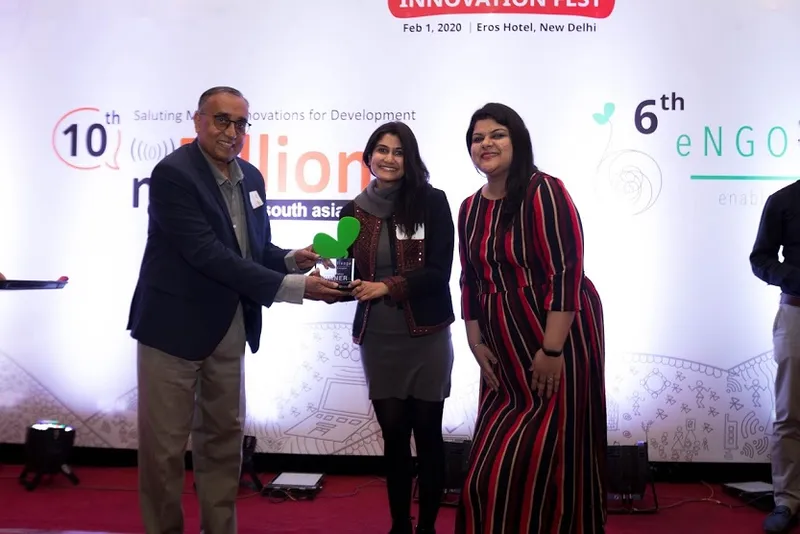
Government engagement and smart settlements
Bhopal Plus monitors the Smart City Development projects for the city of Bhopal. The platform has four components: Citizen Collaboration, Grievance Redressal, Citizen Service Delivery, and Public Dashboard. It facilitates two-way communication between the citizens and government, including citizen inputs, service requests, and grievances.
SmartLoo focuses on improved sanitation services via IoT sensors and analytics. It helps improve monitoring capabilities and resolution of issues. Outcomes include reduced costs of public toilet maintenance and refurbishment, particularly for urban poor and marginalised communities.
Health and well-being
app is an integrated digital health platform to help citizens chose appropriate healthcare services at the best possible price. Consumers can learn about their medicines and find cost-effective substitutes, as well as connect to healthcare professionals, book appointments at labs for tests, and receive pill reminders. There are over 25 million downloads reported so far.
The PMJAY app allows entitled Indian citizens under the Pradhan Mantri Jan Arogya Yojana (PMJAY) scheme to check their eligibility and avail of quality healthcare services at the nearest hospital. It logs information of past treatment details and remaining wallet balance of patients. It reported over five lakh downloads within 48 hours of its launch in 2019.
The Shruti program for ear-care has helped screen over seven lakh people and provide ear treatment to over 25,000 patients. It includes awareness, screening, diagnosis, and treatment for the undeserved through partnerships with ENT clinics. Treatments vary from minimal intervention for those with impacted wax and foreign bodies in their ear, to surgery and hearing aids to restore ear health.
Inclusion and empowerment
The Internet Saathi programme aims to facilitate and improve digital literacy among women in rural India. The trainers help other women in and around their villages in getting online and using digital services and content. As of 2019, there were more than 81,500 Internet Saathis who have helped 28 million women learn about the internet, across 289,000 villages.
The Hellotask app allows users in Dhaka to hire domestic help for any duration of time, be it a few days, weeks or a month. It connects customers with nearby domestic helpers based on time, location and type of work. It also provides information on the worker’s training and experience, along with customer rating and feedback. This has helped low-income women become skilled, digitally literate, empowered and independent.
Samsung’s Global Goals app provides support for the United Nations’ Sustainable Development Goals by allowing the user to contribute revenues earned through advertisements to the goals of their choice. The 17 goals address poverty, inequality, climate, environmental degradation, peace and justice.
Jaipur Rugs has developed the Taana-Baana app to address the issue of tracking the rug-making process at the ground level in real-time. Jaipur Rugs works with 40,000 artisans in 600 villages in India. The app provides updates from the artisans on the stages of rug production, and also enables virtual storytelling by designers and artisans.
The Madhya Pradesh e-Prosecution app enables prosecution officers to register their activities and functions in real-time directly from the court premises. They can track court appearances, outcome of the hearings, and decisions immediately after the hearing. It provides case histories as well, which can be used for analysis and future planning.
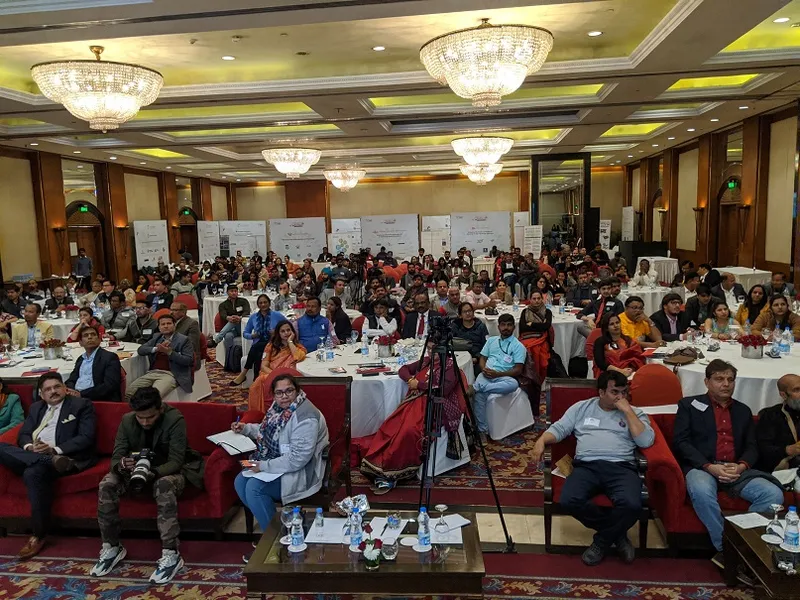
Learning and Education
Pratham Books’ StoryWeaver is a digital repository of multilingual stories for children. It provides reading resources and collaborative tools that allow learners to adapt content to their needs. Books in a number of languages are available under the Creative Commons license, and can be downloaded and printed in multiple formats.
ReadToMe leverages AI to improve reading, comprehension, and spoken English skills. The app is an initiative of RightToRead, and provides large-scale, speedy and affordable implementation for reading programmes in government schools. Partnerships have helped extend the reach to Africa and Central America as well.
Yare Mehrabam is an educational programme for Afghan parents and children. It provides stories, games and puzzles in Dari, Pashto, and English. The app is developed by Code to Inspire (CTI), the first coding school for girls in Afghanistan. It was founded by Fereshteh Forough in 2015 as a two-year after-school program.
The learning platform taps the online higher education space in India. Launched in 2015, it offers flexible programs at 60-70 percent of the cost of an offline course. This allows users to get access to quality education at a lower price point.



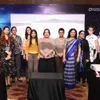
![[Startup Bharat] Away from the metros, a new breed of deep-tech startups is solving ‘real India’ problems](https://images.yourstory.com/cs/2/a9efa9c0-2dd9-11e9-adc5-2d913c55075e/Deep-Tech-Startups-and-Real-India_YourStory1558939152147.png?fm=png&auto=format&h=100&w=100&crop=entropy&fit=crop)
